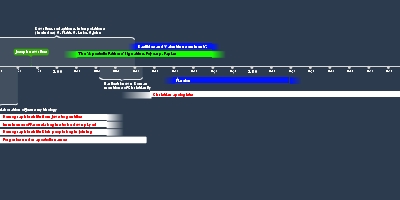Minor theologians (jan 1, 175 – dec 31, 209)
Description:
Rhodon (175-185 CE) is a rather obscure writer mentioned by Eusebius and Jerome. Eusebius claims that Rhodon was the author of a work against Marcion (addressed to a Callistion), and a student of Tatian who wanted to provide original solutions to scriptural problems adduced by Tatian but apparently not resolved in a satisfactory manner.Per Eusebius, the Stoic philosopher Pantaenus (180-200 CE) heads up the earliest Christian catechetical school at Alexandria, where he will go on to teach Clement. Per Jerome, he was the author of many biblical commentaries. Interestingly, the gnostic Theodotus appears to cite “our” Pantaenus as an authority on prophetic interpretation, leaving open the question as to just how orthodox he was.
Maximus of Jerusalem (185-195 CE) writes on the problem of evil and the origin of matter and its qualities. He describes God as a “creator” only in the sense of having arranged and tinkered with the substance of matter, which existed from eternity and already contained the propensity for evil within it.
Serapion of Antioch (200-210 CE) writes. Eusebius refers to three specific works: a private letter to a Caricus and Pontius against Montanism (supposed to have circulated also amongst bishops in Asia and Thrace), a work addressed to a Domninus, who had abandoned Christianity for Judaism during a time of persecution, and a pamphlet written to a Christian community in Rhossus (Cilicia) condemning the Gospel of Peter. Eusebius indicates that other works by Serapion probably existed, including others about this same heterodox gospel, as well as personal letters to Caricus and Pontius. Serapion’s writing is also notable for its suggestion that heterodox documents (even a known pseudepigraph written in Peter’s name) had previously been given a wide berth of toleration by at least some proto-orthodox sect leaders, and are only secondarily being suppressed in an effort to root out heretical ideas. This new era have been inaugurated by the work of contemporary heresiologists (e.g. Irenaeus) in explicating and refuting the systems of heterodox leaders such as Marcion. Serapion also implies that relations between Christian sects are at least collegial enough for him to be allowed to borrow the Gospel of Peter from Marcionite leaders for analysis (and finding it “mostly” orthodox!). Serapion also appears to claim that Marcion received his doctrines from the “Docetae” (similar to Pseudo-Hippolytus’ system, but inversed in temporal sequence).
Added to timeline:
Date:
jan 1, 175
dec 31, 209
~ 35 years
